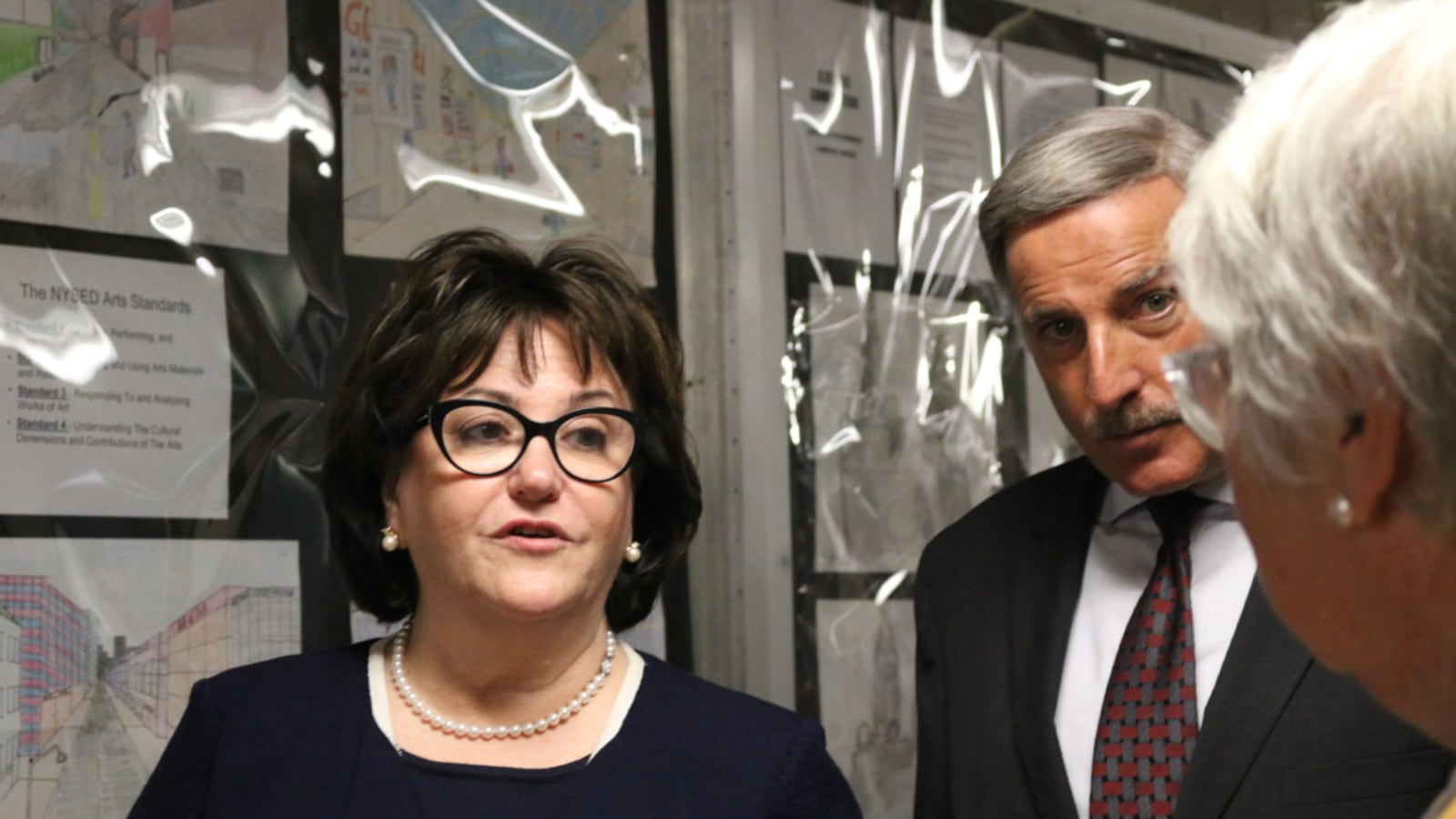The U.S. education department will allow the bulk of New York’s federally mandated education plan to stand, according to much-anticipated feedback it sent the state this week.
New York submitted a plan in September for how it will evaluate schools and intervene when they struggle, as required by the federal Every Student Succeeds Act. On Monday, U.S. Education Secretary Betsy DeVos’s administration sent back its response, which mainly called for tweaks and clarifications.
While the feedback provided mainly welcome news for the state, it also left some important policy questions around testing and graduation unanswered.
“We received and are pleased with [the U.S. Department of Education’s] initial feedback on New York’s ESSA plan,” said State Education Commissioner MaryEllen Elia in a statement. “We are reviewing USDE’s letter to determine what changes to the plan will be necessary, such as clarifying and providing more details in certain areas.”
The feedback covers a range of technical details in the plan around achievement goals, graduation rates, students who are still learning English, and more. Some highlights include:
- New York may have to get federal approval each year in order to annually update its academic achievement and graduation goals, as its plan proposes.
- The letter suggests the state will not be able to use science and social studies test scores as as a way to judge schools on their academic performance, though those subjects can still factor into ratings of school quality.
- New York had proposed one way of measuring school performance where students who opt out of the state tests would not count against a school’s overall rating. But the feedback says that if more than five percent of students skip the tests, they will be counted as having failed.
- The state will have to clarify — and possibly change — how it targets for extra support schools where certain groups of students, including black or Hispanic students, are performing poorly.
But the feedback does not touch on a couple of hot-button issues.
New York requested a waiver for students with disabilities to take state tests that align with their skill level rather than their grade, which the letter does not address. U.S. education department officials said they would respond to the waiver request separately.
Some observers have pointed out that one type of diploma that New York issues may not meet the law’s requirements, which they said could force the state to lower its graduation rate. The plan did not address that issue specifically, but experts said the department could ask New York to make a change at a later.
Overall, the feedback will force the state to make some changes to its plan, but it won’t result in a complete overhaul, said Anne Hyslop, an education consultant who worked as a senior policy advisor at the U.S. Department of Education during the Obama administration.
“It doesn’t seem like it’s wholesale, huge revisions,” Hyslop said. “It’s more like clarifications and changes that have an impact, but aren’t going to result in a monumentally different system.”

